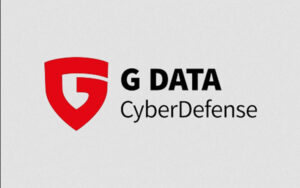Best CD Rates While TotalDirectBank currently offers the best CD rate of 5.51% for a 3-month CD, there are other financial institutions that offer competitive rates that vary by term. For example, Ally Bank offers a 1-year CD with a 0.60% APY, while Marcus by Goldman Sachs offers a 5-year CD with a 0.80% APY. It’s important to shop around and compare rates before choosing a CD to ensure that you get the best return on your investment. Additionally, be sure to consider any penalties or fees associated with early withdrawal or account maintenance when making your decision.
Certificate of Deposits (CDs) are a type of savings account that offers a fixed interest rate for a specific term. However, unlike traditional savings accounts, you cannot withdraw your funds before the maturity date without incurring penalties or sacrificing all the earned interest. The interest rates for CDs are typically higher than regular savings accounts, making them ideal for long-term investments. Furthermore, there are different types of CDs available that offer various features like flexible terms, higher interest rates, and no penalties for early withdrawal under certain circumstances. It is important to understand the terms and conditions of a CD before choosing one to ensure it aligns with your financial goals.
Outlines Of Guide
ToggleBest CD Rates 2024
As of January 16, 2024, the FDIC reported that the average APYs for CDs with terms ranging from one month to five years varied between 0.23% and 1.41%. However, current CD rates are much higher. We have analyzed 142 CD and certificate accounts from 84 banks and credit unions across the country to identify the top CD rates in the United States. Below is a summary of our top CDs categorized by the highest annual percentage yield (APY) range.
- Bread Savings Certificate of Deposit: 4.15% to 5.35%
- CommunityWide Federal Credit Union CW Certificate Account: 4.00% to 5.50%
- Marcus by Goldman Sachs High-Yield Certificates of Deposit: 4.00% to 5.15%
- EverBank Basic CD: 3.85% to 5.25%
- Quontic Bank Certificate of Deposit: 4.30% to 5.30%
- First National Bank of America Certificates of Deposit: 4.30% to 5.15%
- Consumers Credit Union Certificate Account: 0.50% to 4.88%
- Connexus Credit Union Share Certificate: 3.51% to 5.01%
- PenFed Credit Union Money Market Certificates: 3.00% to 4.65%
- Bethpage Federal Credit Union Certificate Account: 2.25% to 4.00%
Best CDs With High Rates 2024
While APY is a vital factor to consider when comparing CD rates, it is not the only metric we examine. When selecting an account, we also evaluate other aspects such as the terms and conditions, account fees, and minimum deposit requirements. Furthermore, we review individual bank accounts to provide you with a comprehensive understanding of their pros and cons. By doing so, you can make an informed decision that aligns with your financial goals and needs.
Connexus Credit Union Share Certificate
Why We Picked It
Connexus Credit Union offers some of the most attractive yields on its share certificates, which are similar to CDs offered by banks. The credit union has five different share certificate terms: 12 months, 24 months, 36 months, 48 months and 60 months, with annual percentage yields (APYs) ranging from 3.51% to 5.01%. Additionally, they have a special certificate with a term of 17 months that offers an APY as well. The minimum deposit required is $5,000 for these share certificates. It’s worth noting that higher yields typically come with longer terms, so it’s important to consider your investment goals and time horizon before choosing a term.
Connexus has also achieved a high ranking for digital experience, with its mobile app receiving high ratings on both the App Store and Google Play. Connexus does not mandate the opening of a checking account to open a share certificate, unlike certain other credit unions. However, membership in the credit union is necessary. If you do not meet the standard membership criteria, you can qualify by making a one-time $5 donation to the Connexus Association.
Pros & Cons
Pros
- Competitive rates on its share certificates
- Highly rated mobile app
- No checking or savings account required to open a share certificate
Cons
- $5,000 minimum deposit required to open
- Dividends compounded quarterly
Details
Credit union account earnings are called dividends, not interest. At Connexus, dividends are compounded and credited to your account every quarter. Early withdrawal penalties differ based on the term. Share certificates renew automatically at maturity, with a 10-day grace period to withdraw funds after maturity. All members must have a Connexus savings account with a minimum deposit of $5.
First National Bank of America Certificates of Deposit
Why We Picked It
The First National Bank of America (FNBA) offers seven different CD terms, ranging from six months to 84 months, with competitive APYs between 4.30% and 5.15%, and a low minimum deposit requirement of $1,000. FNBA’s CDs may be especially suitable for individuals seeking longer-term options, as it is one of the few banks in our database that provides CD terms of 72 and 84 months, offering respective yields of 4.35% and 4.30%.
FNBA offers a top-rated mobile application available on the App Store and Google Play for individuals who want to conveniently manage their CD accounts while on the move.
Pros & Cons
- Competitive APYs across CD terms
- Offers 72-month and 84-month CDs
- Relatively low minimum deposit requirement
- Highly rated mobile app
- Interest compounded quarterly
- It’s possible to find higher rates on some CD terms at other banks and credit unions
Details
Interest is compounded and added to your account every quarter. The early withdrawal penalty changes depending on the term. The bank sends a notification around 30 days before the CD reaches maturity, giving you the option to withdraw your funds, renew your CD automatically, or transfer your funds to another CD. Rates and CD options may have slight variations for Michigan residents.
Quontic Bank Certificate of Deposit
Why We Picked It
Quontic Bank provides competitive interest rates for its CDs and offers advanced online and mobile resources for CD management, which is exactly what one would anticipate from an internet-based bank. The user-friendly mobile application from Quontic is accessible on iOS and Android platforms.
Quontic provides a selection of five CD terms, including six months, 12 months, 24 months, 36 months, and 60 months, offering APYs between 4.30% and 5.30%. Funding options include transferring from an existing Quontic account, using ACH transfer from another bank, or utilizing Plaid technology. The minimum deposit requirement is only $500.
Pros & Cons
- Competitive APYs across CD terms
- Innovative online and mobile tools
- Low minimum deposit requirement
- Open an account online within minutes
- Only offers five term options
- Quontic doesn’t accept cash deposits
Details
Interest is compounded on a daily basis and is deposited monthly. If you withdraw funds from the bank’s 24-month CDs before the maturity date, you may be charged an early-withdrawal penalty of up to two years of interest at the current rate. The CDs will renew automatically after maturity, with a 10-day grace period during which account holders can make changes to the account.
PenFed Credit Union Money Market Certificates
Why We Picked It
PenFed Credit Union offers competitive yields of 3.00% to 4.65% on nine Money Market Certificate terms, ranging from six months to seven years. The minimum deposit requirement is a modest $1,000. The credit union receives impressive customer satisfaction ratings. Its mobile app is highly rated and can be accessed on both iOS and Android devices. Despite the term “money market” in its name, this certificate is actually a share certificate, not a money market account.
When you open a certificate with PenFed, you have the option to select your maturity preference and have the flexibility to modify it before it matures. This allows you additional time to determine how you want to handle the funds when the certificate matures, whether it’s transferring the funds to another PenFed account, rolling it into a new certificate, receiving a mailed check, or transferring it via ACH. To become a member of PenFed Credit Union, you can open a savings account with a $5 deposit.
Pros & Cons
- Competitive dividend rates across terms
- Wide range of certificate terms
- Change your maturity option at any time prior to maturity
- Dividends compounded daily on certificate terms greater than six months
- Highly rated mobile app
- Membership is required to open a certificate
- Early withdrawal penalties can be steep
- Must open a savings account to access certificates
Details
The returns gained from credit union accounts are known as dividends, not interest. Six-month certificate dividends are earned on a simple interest basis and are disbursed upon maturity. Other CDs have daily compounding of dividends and monthly crediting. Early withdrawal penalties differ based on the term.
CommunityWide Federal Credit Union CW Certificate
Why We Picked It
CommunityWide Federal Credit Union offers a competitive yield of 4.00% to 5.50% on its certificate accounts, with seven different term options ranging from six months to 60 months. The minimum deposit required is $1,000. CommunityWide differs from many other credit unions and banks in that it does not automatically renew your certificate account when it matures. Instead, you have the option to renew it for another term or to deposit the principal and interest into another account at CommunityWide or a different institution.
To open a certificate account with CommunityWide, one must be a member of the credit union. Membership is available to U.S. citizens who open a savings account with a minimum deposit of $10, $5 of which will be directed to the Marine Corps, Habitat for Humanity, or Goodwill.
Pros & Cons
- Competitive dividend rates across terms
- Wide variety of terms
- Doesn’t automatically renew certificate accounts
- Membership is required
- Requires a savings account to open a certificate account
- Dividends compounded monthly
Details
Credit unions offer their members a different term for the return earned on their accounts. Instead of interest, they refer to the returns as dividends. These dividends are compounded and credited to the member’s certificate account every month. However, early withdrawal penalties may vary according to the term of the account. It is essential to read and understand all the terms and conditions before making any investment decisions in a credit union account.
Bethpage Federal Credit Union Certificate Account
Why We Picked It
Bethpage Federal Credit Union’s Certificate Accounts meet multiple criteria. These certificates offer competitive dividends, with rates ranging from 2.25% to 4.00% APY, and require a minimum deposit and balance of just $50. Bethpage provides nine standard certificates, with terms ranging from three months to 60 months.
Bethpage stands out as one of the limited number of institutions in our list that provides a highly competitive dividend on a three-month certificate, making it an attractive option for individuals looking to save for short-term objectives.
You have the option to handle your certificate account through the internet or using Bethpage’s mobile app. Additionally, you are able to join Bethpage by depositing $5 into a Bethpage savings account.
Pros & Cons
- Competitive dividend yields across terms
- Wide range of terms
- Very low $50 minimum deposit requirement
- Fairly easy to join
- It’s possible to find higher rates at other banks and credit unions
- Must open a savings account to access certificates
- Requires membership
Details
Credit union accounts earn yields referred to as dividends, not interest. For online certificates, dividends are compounded daily and credited monthly. Members opening a certificate in a branch can choose between monthly or quarterly crediting frequency and select a dividend period for six months to 39 months. After the certificate matures, there is a seven-day grace period to renew or change the account. However, early withdrawal from the account results in a penalty of either 90 or 180 days’ dividends depending on the term length. It’s important to understand these details before opening an account with a credit union to ensure you make informed decisions about your finances.
Bread Savings Certificate of Deposit
Why We Picked It
Bread Savings provides competitive rates for its CDs, which can be opened with a minimum deposit of $1,500. There are five term lengths to choose from: 12 months, 24 months, 36 months, 48 months, and 60 months.
Bread Savings CDs enable account holders to deposit up to $1 million per account and $10 million per customer, a much higher balance limit than what other banks on our list offer. Similar to the other banks on this list, CDs at Bread Savings are FDIC-insured up to $250,000 per depositor, for each ownership category, in case of a bank failure. However, there is the option to deposit more. The Bread Savings mobile app allows customers to keep track of their CD accounts.
Pros & Cons
Pros
- Maximum deposit limit of $1 million per account and $10 million per customer
- Competitive APYs
- Interest compounded daily
Cons
- It’s possible to find higher rates at some credit unions and online banks
- Doesn’t offer terms shorter than one year
Details
Interest is compounded on a daily basis and then credited monthly. The penalty for withdrawing early is equivalent to either 180 or 365 days’ worth of simple interest, depending on the term. There is a 10-day grace period after maturity to withdraw funds or close the account. Failure to take action will result in the automatic renewal of your CD.
EverBank Basic CD
Why We Picked It
EverBank, now known as TIAA Bank, provides 10 CD options with durations ranging from three months to five years. The minimum deposit needed to open an account is a reasonable $1,000. The bank’s CD rates are competitive, varying from 3.85% to 5.25% APY across different term lengths. EverBank provides a 20-day advanced maturity alert, allowing ample time to decide how to manage your funds. Additionally, there is a 10-day grace period after the maturity date.
Pros & Cons
Pros
- Competitive APYs across terms
- Wide range of terms
- Highly rated mobile app
- 20-day advance maturity alert
Cons
- It’s possible to find higher rates at some credit unions and online banks
- Early withdrawal penalties can be steep
Details
Interest is compounded on a daily basis and credited every month. The penalties for early withdrawal differ based on the length of the term.
Consumers Credit Union Certificate Account
Why We Picked It
Consumers Credit Union offers 10 certificate terms, ranging from 91 days to five years, with competitive dividend rates between 0.50% and 4.88% APY. The minimum deposit to open a certificate is $250, and dividends are compounded daily and credited to your account monthly.
Consumers is primarily an internet-based credit union, with a few branch locations in Illinois. If you’re not in close proximity to a branch, you can manage all your banking requirements through Consumers’ website and mobile app. Additionally, it provides a 24/7 live chat option, and customer service is accessible by phone six days a week.
By donating $5 to the Consumers Cooperative Association, you are eligible to become a member of Consumers Credit Union.
Pros & Cons
- Competitive dividends
- Wide range of term lengths
- Low minimum deposit requirement
- Interest compounds daily
- It’s possible to find higher rates at credit unions and banks
- Membership is required
Details
The returns generated from credit union accounts are called dividends instead of interest. Dividends are compounded daily and credited to your account on a monthly basis. If the term is one year or less, the early withdrawal penalty is equivalent to 60 days’ dividends. For terms exceeding one year, the early withdrawal penalty amounts to 120 days’ dividends. There is a 10-day grace period after your certificate matures to withdraw funds from your account, or else your certificate will automatically renew.
Marcus by Goldman Sachs High-Yield Certificates of Deposit
Why We Picked It
Marcus by Goldman Sachs provides nine various terms, ranging from six months to six years, with competitive rates between 4.00% and 5.15% APY, along with a minimal deposit requirement of $500. Marcus permits penalty-free withdrawal of the interest earned on your CD every month. You have the option to transfer the interest to a Marcus Online Savings Account or an external bank account. It’s important to note that withdrawing interest reduces the total amount you can earn on your investment.
Marcus provides a guarantee for the 10-day CD rate. If the rate for the chosen CD term increases within the initial 10 days after funding your account, you will receive the higher rate automatically. A minimum deposit of $500 within the first 10 days is required to avail of this guarantee.
Pros & Cons
- Competitive APYs
- Rate guarantee
- Low minimum deposit requirement
- Interest compounded daily
- It’s possible to find higher rates at other banks and credit unions
- No terms beyond six years
Details
Interest is compounded on a daily basis and then credited monthly. Following the maturity date, there is a 10-day grace period to withdraw funds, renew the CD, or close the CD and open a new one. If no action is taken, the CD will automatically renew.
Best CD Rates by Term
When looking for a specific CD term, be sure to review the top CD rates for that term below. While APY is important, these financial institutions also excel in other areas like minimum requirements, interest compounding frequency, customer experience, and digital banking options.
- 3 Months: TotalDirectBank CD at 5.51% APY
- 6 Months: CommunityWide Federal Credit Union CW Certificate Account at 5.50% APY
- 12 Months: Bread Savings Certificate of Deposit at 5.35% APY
- 24 Months/2 Years: First National Bank of America Certificates of Deposit at 4.80% APY
- 36 Months/3 Years: First National Bank of America Certificates of Deposit at 4.65% APY
- 48 Months/4 Years: First National Bank of America Certificates of Deposit at 4.55% APY
- 60 Months/5 Years: First National Bank of America Certificates of Deposit at 4.55% APY
Best 3-Month CD Rates
| Bank/Credit Union | APY | Minimum Deposit |
|---|---|---|
| TotalDirectBank CD | 5.51% | $25,000 |
| EverBank Basic CD | 3.95% | $1,000 |
| Bethpage Federal Credit Union Certificate Account | 2.25% | $50 |
Best 6-Month CD Rates
| Bank/Credit Union | APY | Minimum Deposit |
|---|---|---|
| CommunityWide FCU | 5.50% | $1,000 |
| Synchrony Bank | 4.80% | $0 |
| Quontic Bank | 5.05% | $500 |
Best 1-Year CD Rates
| Bank/Credit Union | APY | Minimum Deposit |
|---|---|---|
| CommunityWide FCU | 5.25% | $1,000 |
| Bread Savings | 5.35% | $1,500 |
| First National Bank of America | 5.15% | $1,000 |
Best 18-Month CD Rates
| Bank/Credit Union | APY | Minimum Deposit |
|---|---|---|
| Synchrony Bank | 4.50% | $0 |
| Live Oak Bank | 4.90% | $2,500 |
| Ally Bank | 4.45% | $0 |
Best 2-Year CD Rates
| Bank/Credit Union | APY | Minimum Deposit |
|---|---|---|
| Marcus by Goldman Sachs | 4.40% | $500 |
| First National Bank of America | 4.80% | $1,000 |
| Synchrony Bank | 4.20% | $0 |
Best 3-Year CD Rates
| Bank/Credit Union | APY | Minimum Deposit |
|---|---|---|
| First National Bank of America | 4.65% | $1,000 |
| Quontic Bank | 4.40% | $500 |
| Synchrony Bank | 4.15% | $0 |
Best 4-Year CD Rates
| Bank/Credit Union | APY | Minimum Deposit |
|---|---|---|
| First National Bank of America | 4.55% | $1,000 |
| Marcus by Goldman Sachs | 4.20% | $500 |
| Synchrony Bank | 4.00% | $0 |
Best 5-Year CD Rates
| Bank/Credit Union | APY | Minimum Deposit |
|---|---|---|
| First National Bank of America | 4.55% | $1,000 |
| Synchrony Bank | 4.00% | $0 |
| PenFed Credit Union | 4.00% | $1,000 |
Best 10-Year CD Rates
| Bank/Credit Union | APY | Minimum Deposit |
|---|---|---|
| Discover® Bank | 3.80% | $2,500 |
| EmigrantDirect | 2.75% | $1,000 |
| MySavingsDirect | 2.00% | $1,000 |
Methodology
Forbes Advisor examined 142 CD and share certificate accounts from 84 financial institutions, which included traditional banks, online banks, and credit unions. Each account was evaluated based on 11 data points in categories such as APY, minimums, compound interest schedule, customer experience, digital experience, available terms, and overall availability to create this list. Additionally, each account was individually assessed and ranked based on its term.
- APY: 50%
- Minimum deposit requirement: 12.5%
- Customer experience: 10%
- Digital experience: 10%
- Compound interest schedule: 7.5%
- Availability: 5%
- Available terms: 5%
The top of the list was dominated by CD accounts offering higher APYs. Minimum deposit requirements of $10,000 or more had a negative impact on scores. Accounts with daily compounding interest were ranked higher compared to those with monthly or quarterly schedules. National availability was a requirement for accounts to be included on this list.
Complete Guide To CD Rates
- Highest CD Rates Today
- Promotional CD Rates
- Bank CD Rates
- CD Rates By State
- Are CD Rates Going Up?
- How To Find the Highest CD Rates
- How the Federal Reserve Affects CD Rates
- CD Rates: All You Need To Know
- What Is a CD Ladder?
- How Much Interest Will I Earn on a CD?
- How To Choose a CD
- How To Buy a CD
- Maximizing Your CD Rate of Return
- Alternatives to Certificates of Deposit
- Banks We Monitor
- Frequently Asked Questions (FAQs)
Highest CD Rates Today
The highest CD rates today are at 5.50%, as reported by Curinos. However, it is important to note that CD rates are not fixed and can be adjusted up or down by banks to align with changes in benchmark rates. This means that the banks offering the best CD rates can change frequently, sometimes even on a daily basis. To ensure that you get the best possible return on your investment, it is important to keep an eye on current CD rates and compare them across different banks before making a decision. Additionally, consider the length of the CD term and any penalties for early withdrawal when choosing a CD.
| CD Rates Today | ||
|---|---|---|
| Term | Highest APY | Average APY |
| 3 Months | 5.39% | 1.26% |
| 6 Months | 5.50% | 1.72% |
| 1-Year CD (12 M) | 5.50% | 1.89% |
| 2-Year CD (24 M) | 5.12% | 1.66% |
| 3-Year CD (36 M) | 5.00% | 1.57% |
| 5-Year CD (60 M) | 4.60% | 1.58% |
| Jumbo CD | 5.50% | 1.65% |
Promotional CD Rates
Banks and credit unions sometimes provide promotional CD rates in order to entice both new and current customers to open a CD account. Promotional CDs usually have term lengths and rates that differ from the bank’s usual offerings. While operating like a standard CD, these special CDs provide a higher APY compared to many other CD options at the bank. The specific requirements for promotional CDs vary among different banks and offers, with some necessitating a higher opening deposit or having special conditions.
- Wells Fargo: Wells Fargo is currently providing a unique CD option, the Wells Fargo Special Fixed Rate CD (7-month), with an APY of 4.75% to 5.01%, which is different from its regular CD terms. The minimum opening deposit for this CD is $5,000, and the rates may differ depending on the location.
- U.S. Bank (U.S. Bank Certificate Of Deposit (Special)): The bank is currently providing four special CDs with durations of seven, nine, 11, and 15 months. The promotional CD rates offered range from 4.20% to 5.05% APY. A minimum deposit of $1,000 is required for U.S. Bank special CDs. Rates may differ based on location.
- Navy Federal Credit Union (Navy Federal Credit Union Special Offer CDs): The credit union provides three options for its 12-month certificate, each with different rates based on the initial deposit. Additionally, Navy Federal has a special 12-month certificate that requires a minimum deposit of $50 and earns 5.30% interest.
| Financial Institution | Special CD Term | APY | Minimum Deposit |
|---|---|---|---|
| Wells Fargo | 7 Months | 4.75% | $5,000 |
| 7-Month Relationship Rate | 5.01% | $5,000 | |
| U.S. Bank | 7 Months | 4.40% | $1,000 |
| 9 Months | 5.05% | $1,000 | |
| 11 Months | 4.30% | $1,000 | |
| 15 Months | 4.20% | $1,000 | |
| Navy Federal Credit Union | 12 Months | 5.05% | $1,000 |
| 12 Months | 5.05% | $20,000 | |
| 12 Months | 5.10% | $100,000 | |
| 12-Month Special EasyStart | 5.30% | $50 |
Bank CD Rates
Top banks offer varying CD rates, with online banks typically providing higher rates compared to traditional national banks. Here are the current CD rates at these banks:
- Chase Bank CD rates
- Bank of America CD rates
- Capital One 360 CD rates
- Wells Fargo CD rates
- Citibank CD rates
- Truist CD rates
- PNC Bank CD rates
- Ally Bank
- Marcus By Goldman Sachs CD rates
CD Rates By State
Banks may provide varying rates for a specific CD term depending on your location. The availability of CD rates could be influenced by the state of residence and the bank.
- Best CD Rates In Texas
- Best CD Rates In New York
- Best CD Rates In New Jersey
- Best CD Rates In California
- Best CD Rates In Florida
- Best CD Rates In Connecticut
- Best CD Rates In North Carolina
- Best CD Rates In Georgia
Are CD Rates Going Up?
The Federal Reserve’s decision to implement multiple rate hikes in 2023 has had a noticeable impact on CD rates. As the Federal Reserve raises its federal funds rate to control inflation, deposit account rates tend to increase as well. This change has the potential to benefit savers who are looking for higher yields on their savings accounts or CDs. However, it also means that borrowers may have to pay more in interest on loans and credit card balances. It is important for consumers to keep an eye on these changes and adjust their financial strategies accordingly.
CD rates have reached a plateau and are expected to remain stable, with no significant changes forecasted in the near future. Although the Federal Reserve is unlikely to reduce interest rates in the coming months, it may do so towards the end of the year. This could lead to a decline in CD rates. As such, it’s essential for investors to evaluate potential risks and returns associated with CDs and other investment options before making any decisions. It is also prudent to keep an eye on market trends and stay informed about any changes that could impact investment portfolios.
How To Find the Highest CD Rates
To start your search for the highest CD rates, use the list of CDs provided above. However, it’s important to compare rates from multiple banks and credit unions to find the best options that fit your financial goals. Before opening a CD account, pay close attention to any deposit requirements and potential withdrawal penalties.Since CD funds are inaccessible for the length of the term, it’s essential to do your due diligence and determine how much money you can afford to ‘park’ in a CD account without risking a withdrawal penalty later. Withdrawing funds early from a CD may result in losing out on interest earnings, or worse, being charged a penalty fee by the bank or credit union.It’s also worth noting that different types of CDs exist such as traditional CDs, callable CDs, jumbo CDs, and variable-rate CDs. Each type has its own advantages and disadvantages depending on your financial situation and objectives. It’s always advisable to consult with a financial advisor before making any investment decisions.
How the Federal Reserve Affects CD Rates
The Federal Reserve regularly changes its benchmark federal funds rate, which affects most interest rates, including those on CDs. When the Federal Open Market Committee (FOMC) sets its target rate, interest rates across the economy adjust accordingly.If the Fed wants to control inflation, the FOMC usually raises rates to reduce the money supply. When there is high unemployment or concerns about a recession, the Fed typically lowers its target rate to stimulate growth.
The federal funds rate has a direct impact on the CD interest rates offered by banks. Typically, any change made to the federal funds rate is followed by a corresponding adjustment in CD interest rates. However, banks may also adjust their CD rates based on speculation about future interest rate changes before an announcement by the Federal Reserve. This proactive approach allows banks to stay competitive and attract customers by offering higher interest rates. As a result, it is essential for investors to keep an eye on both the federal funds rate and bank CD rates to make informed financial decisions.
Latest News on Federal Reserve Interest Changes
The Federal Open Market Committee (FOMC) made a significant announcement on September 20, 2023, stating that there would be no further rate hikes after increasing the federal funds rate four times in the same year. Since then, it has maintained rates at the current target range of between 5.25% and 5.50%. In the coming year, the Fed anticipates a reduction in rates; however, it is unlikely to make any cuts at its next meeting scheduled for March. This decision will have significant implications for businesses and individuals alike as they adjust to changes in borrowing costs and economic conditions.
CD Rates: All You Need To Know
What Is a Certificate of Deposit?
Certificates of deposit (CDs) are a type of account that involves investing money for a fixed period of time and earning a predetermined interest rate. These accounts differ from savings accounts as they limit your access to the invested amount until the maturity date is reached. If you withdraw money before this date, you may be charged an early withdrawal penalty fee. CDs are an excellent option for those looking to earn more interest than traditional savings accounts while keeping their funds secure. The longer the term, the higher the interest rate, making CDs a useful tool in long-term financial planning.
How Do CDs Work?
Certificates of Deposit (CDs) are a type of savings account that require customers to deposit their funds for a specified period. In return, banks and credit unions offer higher interest rates than those typically found in regular savings accounts. CDs come with different terms, which can range from several months to years. The longer the term, the higher the interest rate offered by the bank or credit union. Customers should carefully consider their financial goals and liquidity needs before investing in CDs as early withdrawal fees may apply if they need to access their funds before the maturity date.
Usually, the interest rate increases with the length of the term. Nevertheless, due to the recent economic uncertainty caused by the pandemic in the U.S., some banks have started to adjust the pricing of CDs by offering the same rate for all terms or a higher APY for shorter terms.
How Are CD Rates Determined?
CD rates are determined similarly to other banking rates. Financial institutions frequently utilize an index rate, commonly the federal funds rate, as a benchmark for establishing rates on all interest-bearing accounts. As the fed funds rate increases, banks and credit unions typically raise the interest rates on accounts such as savings and CDs. Conversely, when the fed funds rate decreases, banks will subsequently reduce their rates on those same accounts.
The Federal Deposit Insurance Corporation (FDIC) monitors the rates of deposit and Treasury instruments monthly. By using the FDIC chart, you can compare CD rates to assess how a specific bank or credit union’s CDs compare to the national averages. Banks and credit unions determine rates for CDs based on the term in addition to monitoring current interest rates. Typically, the longer the money is kept in a CD, the greater the interest rate, although there may be exceptions, with banks and credit unions highlighting specific terms at higher rates.
How To Calculate CD Rates
Banks and credit unions determine CD rates based on factors such as the term length and the current interest-rate environment, with the highest rates usually being offered for longer CD terms.
Certificates of deposit come with a fixed interest rate, which allows individuals to easily determine the precise expected return. You can calculate the assured return on a CD by using the following details:
- Your initial deposit
- CD term length
- Interest rate
- Compounding frequency
You have the option to utilize a CD calculator to calculate the amount of interest you can gain with a CD. For instance, if you were to start a 12-month CD with a 2.50% APY and deposit $1,000, you would accumulate $25 in interest over one year. Opting for a 24-month CD at the same rate would result in earning $50.62 over the span of two years. Experiment with various deposit amounts and term lengths to observe the impact on your total savings.
What Is a CD Ladder?
Longer-duration CDs typically offer higher returns but involve locking in your funds for a longer period, unless you’re open to paying an early withdrawal penalty. One strategy to benefit from both options is to use a CD ladder, where you divide your money among CDs with different terms, including short-term and longer-term options. When a CD reaches maturity, you can reinvest the funds in a new five-year CD. Over time, you will have a five-year CD maturing annually, providing access to your money while keeping it in a higher-yielding savings option.
At present, CDs may not offer a return in the double digits, but by being willing to explore different options, you can secure a higher rate. With the marketplace experiencing heightened competition, consumers have numerous choices available from both traditional banks and their online counterparts. All banks and credit unions are eager for your business and offer attractive returns, so it’s essential to compare when buying a CD or share certificate.
How To Build a CD Ladder
A CD ladder is a savings technique that includes opening multiple certificates of deposit with different maturity dates. Developing a CD ladder can allow you to benefit from higher APYs on longer CD terms while avoiding tying up all your funds for a long time.
Below are the instructions for constructing a CD ladder:
- Divide your initial deposit: Decide on the amount of money you wish to invest in CD accounts, then distribute the total among the CD accounts you intend to open.
- Open CD accounts: Open a predetermined amount of CDs with the funds you set aside. Each CD should have a different term length.
- Reinvest your funds: As your CDs reach maturity, decide whether to withdraw your savings or reinvest your money into new CDs to continue your ladder.
If you have $5,000 to save and plan to open five CDs, you can distribute $1,000 to each CD for varied terms and rates to create a CD ladder.
- CD 1: $1,000 at 0.50% for 6 months
- CD 2: $1,000 at 0.90% for 12 months
- CD 3: $1,000 at 1.10% for 15 months
- CD 4: $1,000 at 1.25% for 18 months
- CD 5: $1,000 at 1.35% for 24 months
Alternatively, you have the option to distribute them in varying amounts, where the largest balance would earn the highest APY. For instance, it could be done like this:
- CD 1: $250 at 0.50% for 6 months
- CD 2: $500 at 0.90% for 12 months
- CD 3: $750 at 1.10% for 15 months
- CD 4: $1,500 at 1.25% for 18 months
- CD 5: $2,000 at 1.35% for 24 months
The assumption in this example is that your CDs are arranged in order of term length, from shortest to longest, and in order of APY, from lowest to highest. However, you have the option to reverse this and allocate the largest sum to shorter-term CDs and the smallest sum to long-term CDs.
The way you organize your CD ladder will vary depending on your savings goals. By using a CD ladder calculator to run various scenarios, you can estimate the potential growth of your savings with different maturity lengths and interest rates.
Pros and Cons of CD Laddering
CD ladders have their advantages and disadvantages. Here’s a closer look.
Pros
- Take advantage of higher interest rates
- Capitalize on interest rate changes
- Avoid early withdrawal penalties
- Save for various financial goals
Cons
- Rates might not keep pace with inflation
- Investing may offer better returns
- Rates could rise after you open your ladder
How Much Interest Will I Earn on a CD?
The interest earned on a CD is determined by the investment amount, CD term, and interest rate. Using a CD calculator is the simplest method to estimate potential earnings due to the complexity of the calculations. Various examples illustrate the impact of increased investment and compound interest on your overall return.
If you invest $1,000 in a CD with a 3.50% APY, you will earn $35 in interest over one year. This calculation is straightforward – you just need to multiply the APY by your initial investment amount. However, for CDs with terms other than one year, it’s crucial to recognize that the APY is an annualized rate and that interest compounds. If you were to invest $1,000 in a six-month CD, you would earn $17.34 in interest, which is less than half of what you’d earn on a one-year CD. This is due to the increasing impact of compound interest over time, and the fact that you would miss out on six months of compounding.
Placing $1,000 into a five-year CD with a 3.50% APY will result in accruing $187.68 in interest, which is over five times the interest earned from a 1-year CD, thanks to compound interest. A $10,000 CD with a five-year term and a 3.50% APY will generate $1,876.86 in interest, exactly 10 times the amount earned from a $1,000 investment. Even a slight increase in the interest rate can significantly impact the total interest earned, particularly for longer investment periods.
How Much Does a $10,000 CD Make in a Year?
The amount earned from a $10,000 CD in a year is influenced by various factors, including the CD rate and compounding frequency. CDs that compound on a daily basis yield higher earnings compared to those that compound monthly. The variance in the interest accrued from a CD can be substantial. For instance, a $10,000 CD with a 2.00% APY would yield $200 in the initial year, whereas a CD with the same principal at a 5.00% APY would generate $500. Our CD calculator is designed to assist you in calculating the amount of interest you will accumulate on a fixed-rate CD. It provides information on the total interest earned and a detailed breakdown of the earning schedule throughout the CD’s term.
How To Choose a CD
When selecting a CD, it’s important to consider factors beyond just the APY, as banks and credit unions provide a variety of terms and types for these financial products.
- APY: Top-quality CDs provide yearly percentage yields that help your money grow securely while achieving your savings objectives.
- Compounding schedule: Seek out a certificate of deposit that compounds on a daily basis in order to maximize your earnings through faster interest accumulation.
- Minimum deposit: Different banks and credit unions have varying minimum deposit requirements. It’s important to determine the amount you can afford to deposit before you open an account.
- Term: Consider the length of time you plan to keep your money in a CD account, as it is an important consideration when making your selection. CDs are accounts where you deposit your money for a specific period. Make sure the term of the CD matches your financial needs. If you are considering a CD laddering strategy, seek out a financial institution offering terms that align with your strategy.
- Early withdrawal penalty: If you need to access the funds in your CD before it reaches maturity, you will usually be required to pay a penalty. The cost of these penalties can vary depending on the institution and term, but they can often be expensive, consuming the interest earned and sometimes even a portion of your initial investment.
- Customer experience: In the event of a question or issue, the institution’s customer service department should be accessible, supportive, and prompt in their response.
- Digital banking: It is important to find banks and credit unions that offer innovative online and mobile banking services as online institutions typically provide the best CD rates.
- Safety: Seek out the Federal Deposit Insurance Corporation (FDIC) to provide insurance for your bank account. Should the bank fail, it safeguards up to $250,000 per depositor, per bank, for each account ownership category. Similarly, the National Credit Union Administration (NCUA) insures accounts at federal credit unions and most state-chartered credit unions for the same amount.
It is important to prioritize your goals, especially when it comes to considering the best use of CDs for short-term financial goals, such as saving for a car down payment. The selected CD should align closely with the specific financial goal you are aiming to achieve. For instance, if you intend to buy a car within a year, it is advisable to invest in a one-year CD with a competitive interest rate. This not only enables you to access your funds as needed but also helps prevent premature withdrawals from your savings. You have more options than just traditional CDs. There are various types of CDs available, each with its own unique benefits. For instance, if you require greater liquidity from a CD, you might find a no-penalty CD beneficial.
CD Fees
Banks do not impose monthly maintenance fees on CDs, unlike other deposit accounts. Nevertheless, if you withdraw your funds early, you may incur one of the following fees.
- Early withdrawal penalty: Banks impose a penalty for withdrawing funds from a CD before the term expires. The early withdrawal penalty can be a fixed amount, a portion of the interest earned, or related to the CD term. CDs without penalties do not have this charge.
- Broker fees: Brokered CDs, unlike traditional CDs, are capable of being traded on a secondary market, allowing you to sell and cash out your CD at any time. Nevertheless, this action may result in a broker fee, typically a flat-rate fee of approximately $1 per transaction.
Who Is a CD Account Best For?
CD accounts are ideal for individuals with stable incomes who have money they can set aside for the duration of the CD term. The longer the term, the higher the risk of needing to access the funds. CDs also offer a reliable option for those seeking to earn a higher, assured interest rate.
Savings accounts differ from CDs in that they have a fixed APY that remains constant for the duration of the term. However, if flexibility is a priority, a savings account might be a preferable choice, particularly if the rate variances are minimal.
How To Buy a CD
To purchase a certificate of deposit, you can typically do so either online or in person at a bank or credit union. Here are the steps to follow when buying a CD.
- Choose the right CD and term for your needs.
- Apply for an account online or in-person.
- Provide the required personal information to confirm your identity, such as your address, phone number, Social Security number and driver’s license or other government-issued photo ID.
- Once approved, you can fund your CD using a linked bank account or other approved methods.
When Should I Open A CD?
Opening a certificate of deposit (CD) can be beneficial when interest rates are increasing. This is particularly true in a high-inflation environment where the Federal Reserve tends to raise the federal funds rate, leading to higher interest rates on banking products, including CDs. By opening a CD during such times, investors can lock in higher rates for a fixed term, which can result in greater returns on their investment compared to other savings accounts or money market funds. However, investors should also consider the early withdrawal penalties associated with CDs before making any decisions.
Certificates of Deposit (CDs) can be a lucrative option for individuals who are saving for a specific goal, regardless of the timing. Whether it’s a down payment on a house or a new car you’re planning to purchase in a few years, CDs offer an excellent opportunity to earn interest on your savings. With fixed interest rates and no risk of losing money, CDs provide peace of mind to those looking for safe investment options. Moreover, longer-term CDs typically offer higher yields, so it’s essential to consider the term length when choosing the CD that best suits your financial goals. Considering a large sum of money you want to keep safe, a CD may be worth considering due to its combination of low risk and high returns. This allows you to earn more than a regular savings account and steer clear of stock market value fluctuation.
How To Maximize Your CD Rate of Return
Utilizing CDs can be an effective method for increasing savings in both the short and long run. It is beneficial to have a good understanding of maximizing deposits when opening CD accounts.
- Shop around. Comparing options at different banks is a simple way to find the highest CD rates. Online banks tend to offer the best CD rates, but it’s still worth considering traditional banks and credit unions.
- Choose the right term. Leaving money in your CDs until they mature is another smart way to maximize returns. Remember, withdrawing money early can result in the loss of some or all of the interest earned if you’re paying an early withdrawal penalty.
- Consider specialty CDs. As mentioned, bump-up and step-up CDs let you raise your CD rates once or twice during the maturity term. You may consider these CD options to maximize your rate of return if you expect CD rates to rise again.
- Build a CD ladder. Laddering allows you to keep pace with changing CD rates. When a rung in your CD ladder matures, you can deposit it into a new CD with a higher rate to earn even more interest.
Don’t forget, you can store your CDs at different banks. Distributing deposits among accounts at various banks may help you maximize returns if you’re receiving the best CD rates each bank has available.
Alternatives to Certificates of Deposit
While CDs may be a popular option for savings, they may not always be the best choice if you need more accessibility or want to maximize your investment long-term. Fortunately, there are several alternative accounts that you can consider instead. One such option is a high-yield savings account, which typically offers higher interest rates and easy access to funds. Money market accounts are another alternative that offer competitive interest rates and check-writing capabilities. For those looking for tax-advantaged savings options, individual retirement accounts (IRAs) and 401(k)s allow for tax-deferred growth and potential employer matching contributions. Ultimately, the account type that is right for you depends on your financial goals and needs. It’s important to compare the various options available and choose an account that aligns with your specific circumstances.
IRA vs. CD
| IRA | CD | |
|---|---|---|
| Common term lengths | None | 3 months – 5 years |
| FDIC-insured? | No | Yes |
| Fees for early withdrawal? | Yes | Yes |
IRAs are investment accounts that provide tax benefits. They are a popular choice for retirement savings or as a supplement to other retirement accounts. Unlike CDs, which offer returns over a set period, IRAs are ideal for long-term investing. However, you may face penalties on traditional IRAs if you withdraw funds before age 59½, except under certain circumstances. Additionally, annual contribution limits apply to IRAs. The best choice depends on your financial goals and savings objectives. If you intend to save for the long term and maximize tax benefits, an IRA might be the right option for you.
Money Market Account vs. CD
| Money Market Account | CD | |
|---|---|---|
| Common term lengths | None | 3 months – 5 years |
| FDIC-insured? | Yes | Yes |
| Fees for early withdrawal? | No | Yes |
Money market accounts (MMAs) provide the best of both worlds by offering the advantages of savings and checking accounts combined. An MMA is more flexible than a certificate of deposit (CD), and it allows you to earn a higher annual percentage yield (APY) while maintaining easy access to your funds. MMAs are an excellent choice for those who want to earn interest on their savings while still having the ability to withdraw money when needed. However, keep in mind that most MMAs have minimum balance requirements and may charge fees if certain conditions are not met. Additionally, the APY offered by an MMA can fluctuate based on market conditions, so it’s important to stay up-to-date with current rates to ensure you’re getting the most out of your account.
CD vs. Bond
| Bond | CD | |
|---|---|---|
| Common term lengths | 1 year – 30 years | 3 months – 5 years |
| FDIC-insured? | No | Yes |
| Fees for early withdrawal? | Yes | Yes |
Savings bonds operate similarly to loans, with you serving as the lender. By lending money to the government or a corporation for a specific period, you can earn interest. Bonds, like CDs, offer assured interest returns. Cashing in before the term ends could result in financial losses for both account types. Additionally, selling bonds on the secondary market may lead to a decrease in value, particularly if interest rates have risen.
When it comes to choosing between CDs and bonds, interest rates play a significant role in determining which option will yield better returns. Generally, when interest rates are high, CDs offer better returns as compared to bonds. However, in times of low-interest rates, investing in bonds might be a more lucrative option to earn interest. It is crucial to consider the current market conditions and your investment goals before making a decision between CDs and bonds. Additionally, keeping an eye on the changing interest rates can help you make informed decisions about your investments.
CD vs. Savings Account
| Savings Account | CD | |
|---|---|---|
| Common term lengths | None | 3 months – 5 years |
| FDIC-insured? | Yes | Yes |
| Fees for early withdrawal? | No | Yes |
Best CD Rates: Frequently Asked Questions
Which banks have the best CD rates?
Typically, the best CD rates are offered by online banks, although competitive rates can also be found at credit unions and other financial institutions. The rates also depend on the CD term length, with long-term CDs usually earning higher rates than short-term CDs.
What is a good CD rate?
A competitive CD rate is considered good, but its quality depends on market conditions. A rate that seems low now could be viewed as high in the future, or it could be seen as low if the Federal Reserve increases rates. Typically, a good CD rate is at least double the average rate for that term, as per the FDIC.
What is a high-yield certificate of deposit?
A high-yield certificate of deposit (CD) is an account that earns a higher interest rate than the national average. As of January 2024, the national average rate for one-year CDs is 1.86%, but the best one-year CDs can offer rates exceeding 4.00%. Additionally, certain banks may provide promotional interest rates for specific CD terms.
How much do CDs pay?
The amount of money you receive from CDs is determined by various factors such as your starting deposit, the interest rate, CD term, and compounding frequency. The decision of how much to invest in a CD depends on the minimum deposit needed to open it and your willingness to leave the funds untouched until the CD reaches maturity. It might be wise to keep some of your savings in a high-yield savings account or a money market account. This way, you can access those funds in case of emergencies without having to break into your CD prematurely and potentially incurring a penalty.
What are current CD rates?
At present, there are competitive rates offered on different CDs, with rates varying among banks and primarily dependent on the CD term. Please look at the top CD rates listed above to grasp the current available options.
What is the penalty for early withdrawal of a CD?
Banks commonly impose a penalty for withdrawing funds from a CD account before it matures, which can vary based on the bank, term length, and CD account type. Usually, the penalty is a percentage of the interest earned on the CD account.
How long can you leave money in a CD?
CDs offer a set interest rate for a specific period of investment. When your CD reaches maturity, you have the option to reinvest the funds, including the interest, into a new CD. If your bank provides a rollover or renewal option, your CDs may automatically roll over. Whether you opt for a new CD or roll over your investment, the prevailing interest rates will be applicable.
Are CDs taxable?
CD interest over $10 is subject to taxation and must be disclosed to the IRS. The IRS considers CD earnings as taxable income, regardless of whether the money is reinvested. Each tax year, the issuing financial institution will provide a 1099-INT statement detailing the interest earned, which must be reported on tax returns. Even in the absence of a form, it is mandatory to report CD and other deposit account interest to the IRS. Interest is taxed in the year it is received.











































